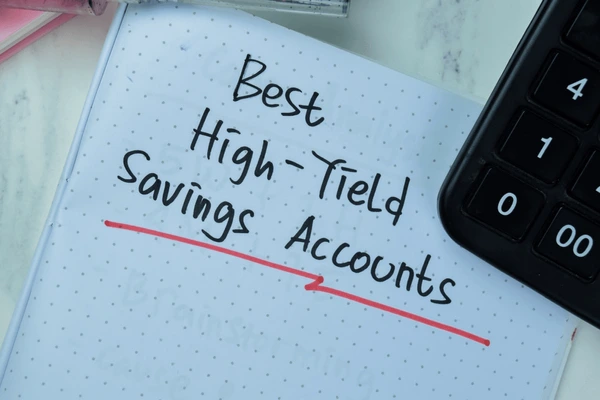How to Set Financial Goals for Your Future
What is Financial Goals?
In simple terms, financial goals are the objectives you set for saving and spending money which can be driven by needs and wants in future. A financial goal can change your perspective of life and money when you will evaluate the everyday decisions in a greater way. It is all about earning, saving and investing and spending portfolios that match your short, medium and long term plans.

Financial goals are equal to financial stability and it is important to maintain good financial goals to achieve dreams. If you are not specific to work upon you will mostly end up spending more than you should.
Types of Financial Goals
Before going into detail about financial goals, firstly we should know about what are the different types of financial goals. Majorly we can divide into 3 types;
1. Short term financial goals
The name represents short term financial goals that can be reached within a year or less than 1 year. Investing or saving money here is to fulfil short term goals like purchase computers or TV sets, vacations or entertainments.
2. Mid-term Financial goals
Unlike short term it often takes up to 5 years. It can be reached between 1 to 5 years of time period. It includes buying or leasing a car and paying off credit card or loan etc.
3. Long term financial goals
Long term goals take much longer than 5 years to fulfil. Investing or saving here is to complete long term goals like create retirement funds, educational funds, and buying a home.
Top 10 most recommended financial goals
1. Make a budget wisely

Making a budget is a crucial step when you are going to focus on your future. A perfect budget plan helps us to create financial stability. While paying tracking expenses and following a plan, the budget can make it easier and more convenient to pay the bill on time. It also stabilizes your major expenses such as rent or insurances, helpful to build an emergency fund and easier your daily and daily financial transactions.
Firstly you have to list your income and expenses that will give some sort of picture about what you have to work with. A perfect credit counsellor exhibited how to create a budget according to your financial ability and plan to achieve your goals.
2.Emergency Fund

We are leading a life which is totally uncertain, during these periods it is very important to create an emergency fund from your initial earnings itself. Whether it is an unforeseen medical emergency, layoffs, accidents or major home repairs are included in these funds. It is recommended that you save up to 3-6 months’ worth of living expenses in an easily accessible account to cover unexpected financial setbacks.
These incidents occur in unexpected situations so during this time it is important to keep sufficient amounts of money to overcome it. Individuals can face these situations without resorting to loan or follow back to long term relationships and even sometimes costly consequences.
3. Paying Off Debt

Simple mantra of paying off debt is that the less you paid interest fees the more money you can save. Like money you can diversify in savings, retirement, tuition fees, down payment or insurance. Make a proper plan to pay off high-interest debts such as credit cards and loans to free up more money for saving and investing. A perfect debt consolidation plan often provides a way out of the credit card debt trap.
According to Investopedia, Paying off high interest debt is likely to provide a better return on your money than almost other investments. If you want to pay off debt interest, start with the highest interest rate debt and work for them. Investing makes more on your investments than your debts are costing you in terms of interest.
4. Retirement Savings

Planning for retirement is the best way to ensure the individual personal finance and security even after his income source has dried up. So it is important to contribute regularly to retirement accounts such as 401(k), IRA, or pension plans to build a secure financial future. Instead of worrying after reaching the edge of retirement or close to retirement, it is better to save some sort of money from starting itself.
Those who wish to spend their life after retirement in comfort without any worry or dependence, then set aside cash every month to grow an investment portfolio. The amount needed for after retirement depends on whether you have any medical history, pending loans and liabilities. In Spite of that, you should also keep in mind that you will also need to take some inflation into account according to the expected rises in goods and services.
5. Buying a Home

Instead of paying a huge amount of rent for the rooms or apartments, buying a new house is a much better idea. Buying a home is the biggest purchase you ever make and which can be a valuable long-term investment. Save for a down payment and closing costs to purchase a home, unlike other consumer purchases home is expected to be more than living space and financially considered as an asset.
While investing and saving your money many people choose to rent and often save and invest the difference between their rent and what they would have had to pay as a mortgage payment, just as well as better than building a home. Finally it is a lifetime asset which gives full freedom to enjoy where you can’t enjoy while in a rented house.
6. Education Fund

Every individual has a dream to provide a quality of education to his children’s. So, setting aside educational funds is crucial in today’s massive educational institutions’ fees structures. Keep money for your or your children’s education, whether it’s for college, vocational training, or other educational opportunities. Financial planning for the cost of education includes tuition fees, living expenses, books and other related costs.
Like emergency funds and retirement funds, educational funds also require the initial phase of your savings or investments. You can start to save as early as possible, never miss to adjust or review periodically your savings plan based on current financial situation. Keep in mind that regular and timely contribution to your children’s or your education is very important.
7. Improve your credit score

In many countries our creditworthiness is evaluated by the credit score. Credit score is normally a three digit number to unlock the financial opportunities and achieve our financial goals. A high credit score often represents lower interest rates on loans such as personal loans, home loans and car or vehicle loans. Lenders should have excellent credit scores considered as low risk borrowers and considered as the most eligible person to get the best interest in the market.
Maintaining a good credit score for CIBIL rating you can save a significant amount of money on interest of payment over the tenure of a loan. There are several benefits if you maintain a good credit score like faster loan approval, higher credit limits, improving the ownership prospects and for getting consolidated debts or plans for retirement. Timely bill payment, avoiding taking new loans and low credit utilizations are major ways to help maintain a good credit score.
8. Launching a Business

Who doesn’t want to be the boss? Starting a business is also included in the financial goals. Simply save or invest funds to start your own business or support a business idea, which can drive you to make more financial capable and wealth creations. Here you have to create a smart business idea, find a seed idea, and stick to a monthly budget. Main motto of starting a business is to get profit and even sometimes goodwill too.
Starting a business is costly and expensive during the initial phase. It includes estimations of the amount for buildings, workplace technology, office furniture or raw materials, marketing/branding/transportations and advertisements. Remember it is a first time investment you should make, if your plan and business strategy is based on customers’ needs and demands, it will definitely recover as early as possible.
9. Set aside fund for Travel

Travelling will make you more active and joyful, especially in today’s stressful work life. As a monthly employee or business owner it is important to take vacation either solo or with family to come out from stress and recharge before returning to office. Travel fills every person’s work life balance in order to achieve his financial goals with less stress and distractions. Allocate some sort of money for travel and experiences that bring joy and personal fulfilment. You can also take business travel, family travel and solo travel in a number of destinations including domestic and International.
It is very important to make some research destinations and accommodations cost to consider the amount of money required while you travel. Like food, accommodations, entry fees, souvenirs and sightseeing activities. It could also lead to access to your financial status before dispatching your backpack as you have resources for other priorities in your life.
10. Wealth Preservation

In today’s volatile economic and financial market it is very important to maintain a steady delicate balance. Wealth preservation is simply a strategy to protect your assets and wealth through estate planning, insurance, and other measures to ensure financial security for future generations. Wealth preservation provides some sort of financial safety to you and your family or loved ones to get a stable base from which to meet essential present day needs and wants.
There are many strategies including wealth preservation like diversification. Diversification is the simple process where you can invest across various asset classes. A well balanced portfolio can help you to diversify your income and reduce the vulnerability to the market. Apart from diversification, asset protection, estate planning, emergency fund and assessment are the major things included.
Above 10 are the major financial goals which you can apply right from today for those who want to lead colorful futures. These financial goals require careful planning and dedication to achieve, but they can provide a roadmap for your financial success and stability in the years to come. Today’s tiny amount may change tomorrow’s big future, so, invest wisely.







